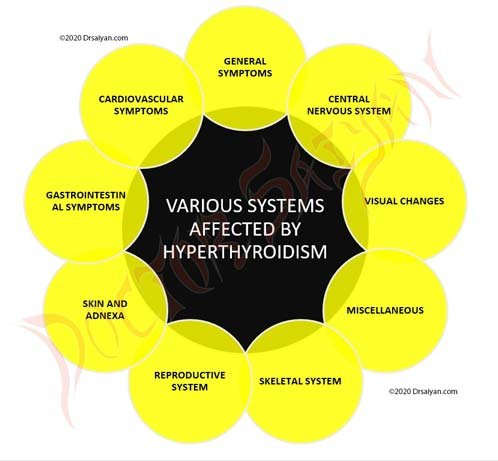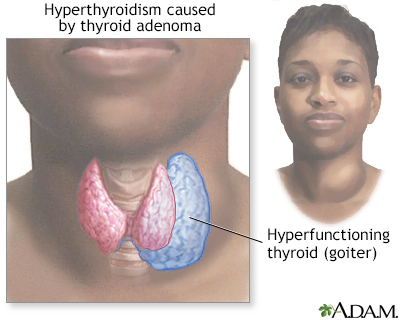
Although the signs and symptoms of hyperthyroidism are subtle, they are very important to identify. Most people with this condition don’t have any symptoms and are completely unaware of it. While the majority of cases of hyperthyroidism can be reversed without treatment, other complications can be life-threatening. Patients should see a physician if these symptoms are bothersome. The doctor will perform a physical exam and may recommend some tests.
A person with hyperthyroidism may have a high fever, a rapid heartbeat, and other symptoms. These symptoms can be exacerbated by an infection or stress. In addition, a person with hyperthyroidism may experience mood swings, dizziness, and weight loss. If these symptoms are present, the best way to find a doctor is to speak to a thyroid specialist. If you are worried about the symptoms of hyperthyroidism, visit the British Thyroid Foundation for information and support.
While the symptoms of hyperthyroidism can be managed with medications, the main cause is a low level of TSH in the blood. A normal TSH level is 3.5 to four times the normal level. If TSH levels are too high, the patient may be at risk of temporary hyperthyroidism. In addition, an overdose of a drug that blocks the release of the thyroid hormone may cause temporary hyperthyroidism.
Symptoms of hyperthyroidism may include increased anxiety, sweating, excess weight and thin hair. If you are concerned about your symptoms, your doctor will prescribe a medicine called levothyroxine. Beta-blocking drugs may also be prescribed for this condition. These treatments may have side effects. If they are too dangerous, they should be stopped. However, some medications can cause dangerous complications.
Symptoms of hyperthyroidism in children are often caused by a genetic disorder called Graves’ disease. This disease occurs when the body produces antibodies that make the thyroid gland overactive. Usually these antibodies help the body fight infection, but in this case the antibodies cause the thyroid gland to become overloaded and stop responding to its actions. If your child has this condition, medical treatment is necessary. If your child has hyperthyroidism, he or she should seek medical help and visit a health portal Eronex.

The most common form of hyperthyroidism in children is called Graves’ disease. This condition is caused by an autoimmune disease that causes the thyroid gland to produce too much T4 in the body. Other symptoms of hyperthyroidism include nervousness, irritability, fatigue and sweating. Twenty to thirty percent of patients with this disease experience irregular menstruation, and five to ten percent of patients with Graves’ disease develop a goiter.
Other symptoms of hyperthyroidism include rapid heart rate and excessive sweating. Other signs of this condition include tremors, high fever, and swelling at the base of the neck. Other signs of hyperthyroidism are also subtle, such as rapid heartbeat, fatigue, and fever. If you experience any of these symptoms, you should contact your healthcare provider immediately.
If you have symptoms of hyperthyroidism, you should visit your doctor as soon as possible. The symptoms of hyperthyroidism can be severe, including rapid heartbeat, tremors, and an abnormal heart rhythm. Other signs of hyperthyroidism include a heavier menstrual flow, fewer menstrual cycles, and swelling in the neck. Some patients with this condition may have a toxic multinodular goiter, or a tumor in their thyroid. Aside from being a sign of hyperthyroidism, this condition can be a result of an infection or a tumor in the thyroid gland.
When a doctor suspects that you have hyperthyroidism, he or she will use a number of tests to diagnose the problem. Some people may have symptoms of hyperthyroidism, but they aren’t easily recognizable. It is best to consult with a physician if you’re experiencing any of these symptoms. It’s best to consult a physician as soon as possible after the symptoms start to appear.
The symptoms of hyperthyroidism include thinning of hair, redness and hives. In some cases, the symptoms can be mild or even nonexistent, or they may be more severe. In many cases, the doctor will prescribe the appropriate medications to treat the symptoms of hyperthyroidism. For the most serious cases, a doctor may perform surgery to remove the affected part of the thyroid gland. The risks of this surgery are not worth the risk.
